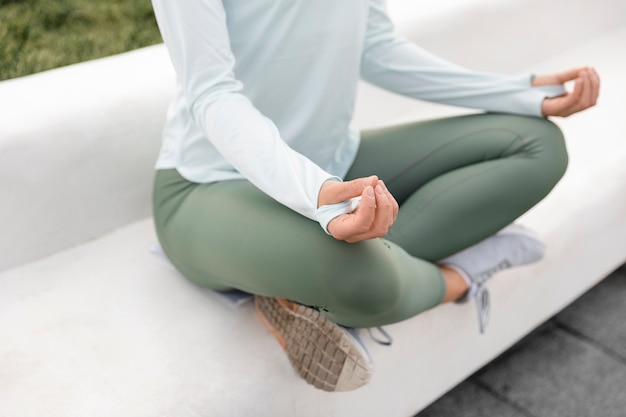
Yoga isn’t just about how flexible you are; it also boosts your memory, heart health, and bone strength, according to Anna Magee. Yoga’s popularity is skyrocketing in the UK, with people spending a whopping £790 million annually on classes and mats.
While yoga now includes strange hybrids like rage yoga, naked yoga, and even dog yoga, its real benefits are gaining scientific backing. For example, UCLA researchers discovered that a three-month course in yoga and meditation is better than memory exercises for reducing age-related brain function decline. Another study found it helps breast cancer survivors sleep better.
Lucy Edge, a former ad executive, turned to yoga when she faced deep depression. Instead of taking antidepressants, she took a six-month break and went to India to learn yoga. She didn’t get the “yoga goddess” body she imagined, but she returned happier and more content than ever. Inspired, she wrote three books on yoga and started Yoga Meds, a section on her website Yogaclicks.com that lists over 300 studies showing yoga’s benefits.
If you’re only doing puzzles to keep your mind sharp, you might want to consider yoga. The UCLA study found that older adults who did yoga and meditation showed better memory improvements and reduced depression and anxiety. Participants in the study practiced Kundalini yoga for an hour a week and did 20 minutes of Kirtan Kriya daily.
For heart health, gentle yoga could be just as effective as brisk walking. A 2014 review in the European Journal of Preventative Cardiology suggested yoga might lower heart disease risk. Yoga helps reduce stress, which is a big factor in heart disease.
Charlotte Watts and Anna Ashby recommend Restorative yoga, where poses are supported with cushions and held for up to 12 minutes, as a quick way to reduce stress. Sarah Shone, a physiotherapist who integrated yoga into rehab programs for back pain, saw significant pain reduction among participants.
Yoga also strengthens pelvic floor muscles, helping with incontinence, and its weight-bearing postures can increase bone density. If you’re new, start with gentle styles like Hatha or Iyengar yoga.
When choosing a yoga mat, consider where you’ll use it, how portable it needs to be, and its thickness to protect your joints. We recommend the Elephant Cork Yoga mat from Valka Yoga, which is eco-friendly, durable, and good for sweaty practices since cork gets grippier when wet.
Yoga blocks, like the cork ones from Valka Yoga, can help with stability and make difficult poses easier. Different yoga styles cater to different needs:
– Yin or Restorative for relaxation
– Vinyasa Flow for energetic, breath-linked sequences
– Iyengar for precise, prop-supported poses
– Anusara for alignment with upbeat movements
Yoga Therapy is available for those with injuries or illnesses, practiced by specially trained teachers.
Lucy Edge’s book “Down Dog Billionaire” is available on Amazon.